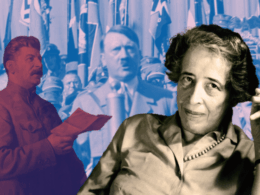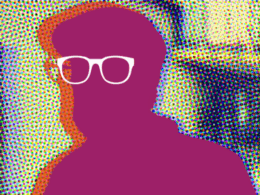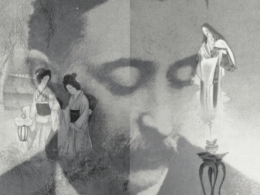In the just-published Becoming Madeleine: A Biography of the Author of A Wrinkle in Time by Her Granddaughters, Charlotte Jones Voiklis and Léna Roy offer a life of Madeleine L’Engle (1918–2007) that draws on previously unseen archival materials—including poems, correspondence, and diary entries—as well as their personal recollections of their grandmother.
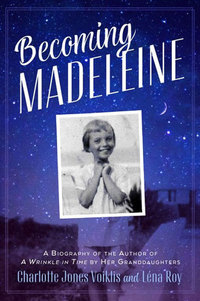
Becoming Madeleine focuses primarily on L’Engle’s youth and the years leading up to her breakthrough success with A Wrinkle in Time in 1962. Targeted at a young adult audience, the biography highlights L’Engle’s determination to prove herself as a writer—a focus that will undoubtedly resonate with older fans of her books as well.
This September, Library of America publishes A Wrinkle in Time and its seven sequels as a comprehensive two-volume set, Madeleine L’Engle: The Kairos Novels. So naturally we were curious to learn more about L’Engle from two women who knew her firsthand.
Library of America: Your grandmother often told stories about her life. Was there anything she hadn’t told you, that you learned while researching this book, that surprised you?
Charlotte Jones Voiklis: There was! She wrote about her own biography in her nonfiction, so we thought that we knew the highlights of her life and that our biography would be special because it would include primary source materials and be geared towards a middle-grade audience. But we learned that she had a best friend in college and beyond named Marie.
Léna Roy: Marie and Madeleine moved to New York City after graduating, and were going to take the theatre world by storm, Marie as a director, Madeleine as a playwright. Their friendship ended up being strained and then fracturing, and that story is something our grandmother never talked about.
LOA: What was the process of co-authoring this book with your sister like?
Roy: It was wonderful. I had wanted to write about our grandmother for a long time, but I didn’t want to do it alone.
Voiklis: And I didn’t want to do it at all! I didn’t want my grandmother to become my research subject rather than my grandmother, and I was nervous that collaborating with my sister might be full of pitfalls and conflict that would put our own relationship in danger. But it ended up really strengthening it, and I think giving our grandmother’s own words in the form of her letters and journal entries such a prominent place made us feel that she was guiding us in a way that also strengthened our connection to her.
Roy: Charlotte and I are very different, but we found that our differences really complemented each other instead of clashing. We want to do more of it!
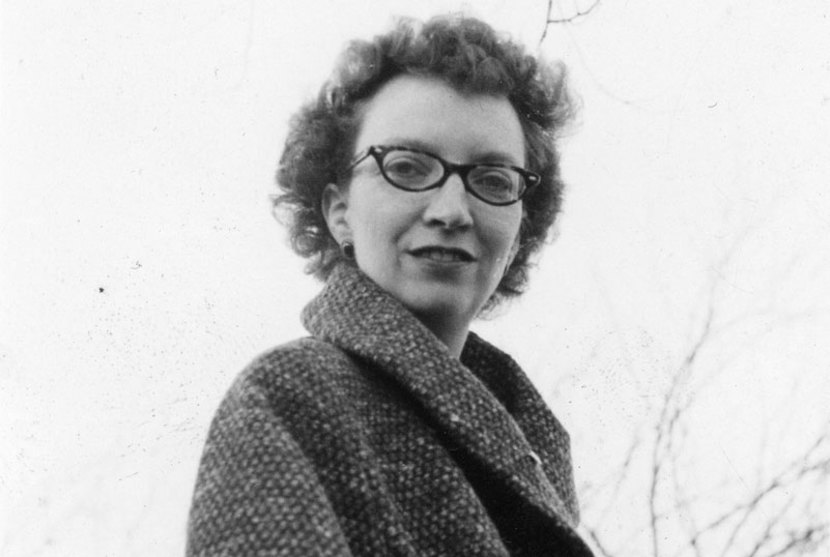
LOA: How did Madeleine’s relationship with her father—who was also a writer—influence her own career?
Voiklis: She knew she wanted to be a writer from a very young age, something that was certainly influenced by the example of her father, who was a prolific writer in a variety of genres—novels, journalism, criticism, and plays. Her mother was an accomplished pianist, though terribly shy about playing in public. She grew up knowing that being a writer or artist of any kind was a worthy vocation.
Roy: But he thought himself a failure, and in many ways he was a cautionary tale for Madeleine. After he came home from World War I, where he had been gassed and overlooked for promotion, his health suffered and he had a terrible time finding work and getting published. His experience drove Madeleine to be disciplined—she thought that part of his problem was that he wasn’t—and also to be frightened by the consequences of failing as a writer. It complicated her ambition and her own feelings of failure.
Voiklis: Her father’s experience in the war very much impacted her, too. She was frightened by the prospect of war, and that didn’t go away as she got older. A lot of her writing was about the specter of war.
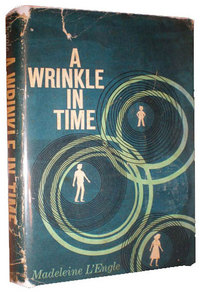
LOA: Your biography includes a lot of extracts from Madeleine’s journals, letters, and other materials from her archive. Did you have a favorite discovery from that trove?
Voiklis: I think my favorite is a letter from her mother to her father when she was born. Madeleine was an only child, and came late in her parents’ marriage. And her father was overseas as an officer in the army. Armistice was November 11 and she was born on the 29th, but he didn’t come home until May 1919. The letter was written on December 13, and it’s clear that the labor and delivery were difficult, and she is only able to write now. And she hasn’t heard from Charles yet. But it begins, “If you could see your little flower of daughter, I am sure you would forgive her for not being a boy.” Ouch.
Roy: I love the letter we found that Marie and Madeleine wrote to Eva Le Gallienne in desperation standing at the stage door just before they had to leave for their summer stock gig. It’s a first draft with edits and scratches. There’s also a beautiful response to Madeleine’s teen poetry from her father—he took her seriously as a writer, and that meant the world to her.
LOA: Your grandmother famously claimed not to write books for children, but for “people.” What would readers who have traveled further chronologically enjoy in your book?
Voiklis: Yes, we certainly hope that readers of all ages will enjoy the book! I think learning about how a writer becomes a writer—and the biography tries to show the different influences and pieces that contributed to that—is interesting to a wide range of ages.
Roy: And the archival material and her own reflections on her process aren’t just for children. We think it might prompt older readers to reflect on their own journey of becoming.
Charlotte Jones Voiklis has a Ph.D. in Comparative Literature and is the executor of Madeleine L’Engle’s estate. Léna Roy works with young writers in Westchester and Connecticut as the Regional Manager for Writopia Lab and is the author of the young adult novel Edges (2010).
